| 9 |
Talk in the series 'Producing the Future: Art and Globalization' organized by the Center for Place, Culture (April 24 2003) Sabine Bitter / Helmut Weber |
<< >> |
||
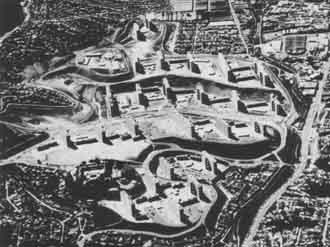 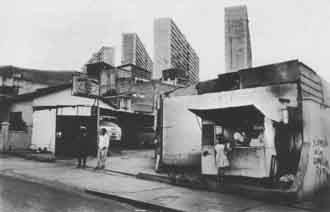 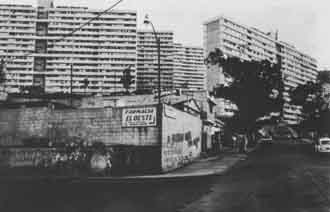 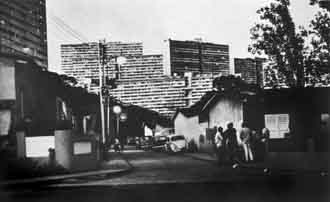 |
urban vision 1958 |
|||
El 23 de Enero will form the background for our work. We will focus on its historic modernist housing architecture and selfmade housings in relation to the people and their conditions of living in both modes of housing. Using recent aerial images of 23 de Enero taken from a helicopter, ascii images will be reconstructed from the text of the Constitution of the 5th Bolivarian Republic of Venezuela -- a constitution devised through participatorey democracy by the people of Venezuela and ratified in 1999. A text with multiple meanings, printed as a small blue booklet and distributed all over the city. When discussing the political and social situation in Venezuela, it seems like everybody but the middle and ruling classes carry the new constitution in their pocket. |
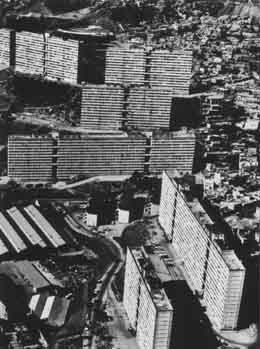 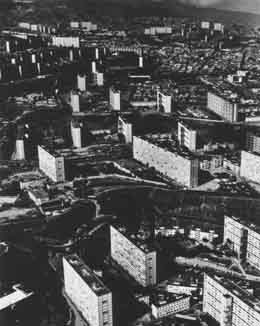 |
|||
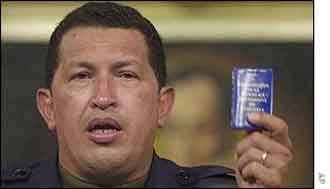 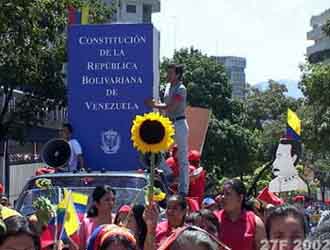 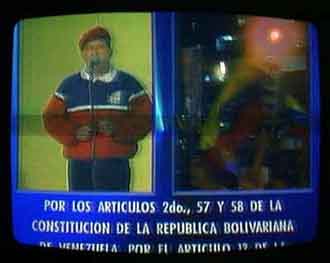 |
constitution 99 urban con-text Hugo Chaves Frias, the president (since 1998) of the 5th Bolivarian Republic of Venezuela is leading this social process and has quite often to argue using the small blue booklet, the Constitution de la Republica Bolivariana de VENEZUELA. Either to counter a coup attempt, or to argue for the restructuring of the state-owned oilproduction company PDVSA, or simply convincing people that participatory democracy is about their future and it is their right to work on that. Based on the new constitution and its unique process of making it (a countrywide participatory process), his government launched a series of laws for social reforms which brought class confrontations in the media and out in the streets. |
|||